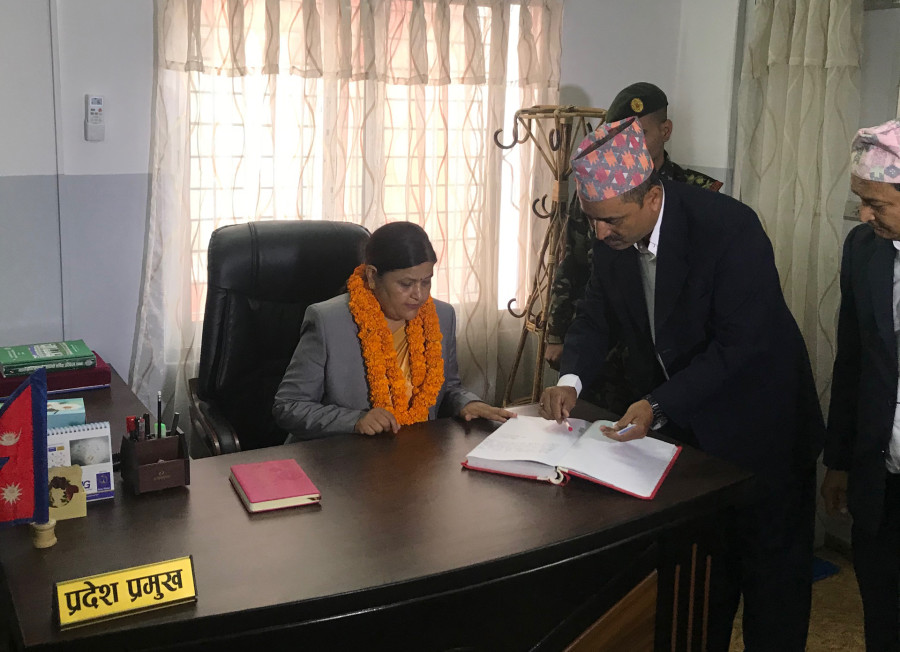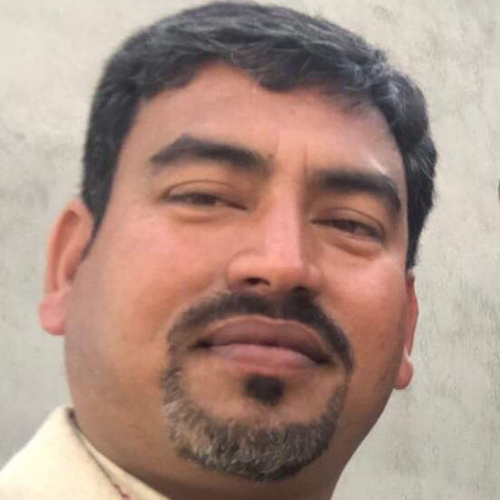Sudurpaschim Province
Women in Sudurpaschim are excited over the appointment of top female officials
Along with the female governor in the province, there are two female cabinet ministers, a female deputy speaker and two women lawmakers.
Arjun Shah
Sharmila Kumari Panta was recently appointed as the new governor for Sudurpaschim province. The provincial cabinet has two female cabinet ministers—Maya Bhatta, Minister for Industry, and Binita Chaudhary, Minister for Agriculture. Nirmala Joshi is the deputy speaker while Nanda Bam and Kunti Joshi are the chairperson of the Public Account Committee and chairperson of Social Development Committee respectively.
The number of women assuming office in the provincial government is probably the highest so far, said Purna Joshi, a provincial lawmaker. “This wave of change in the provincial parliament, with women at the helm of important roles, has given hope to women living in remote areas,” she said.
Kalpana Saud, a local woman of Martadi, Bajura, is excited about the new government-appointed female governor in Sudurpaschim province. She said, “Women in remote parts of the district are living with many problems such as lack of sanitation and proper hygiene, among others. We also live with health issues that our local health posts are not equipped to deal with. I hope that the newly appointed governor will look into such problems.”
After assuming office on November 5, Panta said that she too is looking forward to her time in office and has vowed to work for the aspirations of the people in her province, especially women. “Women in the remote parts of Sudurpaschim Province are compelled to live in hardships. Opportunities for them are few and far between, and not even close to men in terms of their rights and freedom. I want to work for the betterment of these women,” she said.
The appointment of women in the provincial parliament came after the expansion of the Cabinet in the province.
Joshi believes that the new appointments will work towards promoting women’s rights in the province. “It’s a matter of pride for all women here. Sudurpaschim has always found itself lacking in almost all policy-making levels but now we intend to make policies dedicated to women to uplift our rural women in all spheres of life,” she said.
Acknowledging the gender gap in Nepali politics and a minimum number of women representation in leadership roles in the government, Kunti Joshi said, “There aren’t many women in politics. We only have the president to look up to when it comes to women in politics in the country. But that positivity has to trickle down to the grassroots level too. That’s why having women representatives in the local and provincial level is important.”
Chitra Paneru, a female rights activist in Dhangadhi, said that it’s good to have so many women in leadership roles in the provincial government, but the challenge is to create a women-friendly work environment. She said, “It’s difficult for women to be in leadership roles because men are still unwilling to make way for women, and this is true not just in politics but in every profession.”
Bindu Rawal, a local woman of Achham, when asked about the impact of having women in the parliamentary committee, told the Post, “Now that they have reached a position where they can make a difference, the onus to make rural women’s lives better is on them. They have to bring women-centric plans and policies and should work for the betterment of the women living in remote parts of Sudurpaschim province.”




 13.12°C Kathmandu
13.12°C Kathmandu















